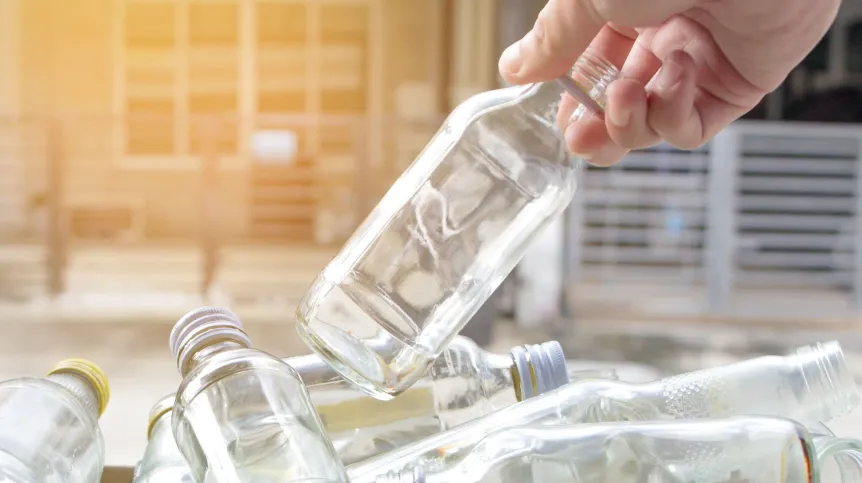
Tests of a reverse vending machine developed in Poznań in cooperation with Łukasiewicz - Poznań Institute of Technology are scheduled to start in the summer. The machine is supposed to return the money to the account even if the person who recycles the bottle does not have a payment card. All they need to do is say a few words.
The reverse vending machines (RVM) will come into force in Poland next year. All shops with an area of more than 200 square meters will be required to accept used bottles and cans. The deposit system will cover plastic bottles with a capacity of up to 3 l, glass bottles up to 1.5 l and metal cans up to 1 l. When purchasing such packaging, the customer will pay an additional PLN 0.50. The money will be refunded when the bottle or can is returned to a collection point.
'We are creating an algorithm that will allow us to encode any bank account number using a few words. When returning a bottle at the RVM, just say, for example, a sequence of three specific words and the deposit will automatically be transferred to your account,’ says Tomasz Markowski, head of the Electronic Devices Research Group at the Łukasiewicz - Poznań Institute of Technology which developed the new system.
He explains that this solution will be appreciated by people who return bottles on a beach, during a walk, or when they go out to take out the rubbish - without a wallet or a smartphone. 'The mechanism that will encode the account number will be available on our website, but we can also provide it to banks that will make it available in their applications,’ he says.
The first dozen or so RVMs will be tested in June. The researchers are looking for shops and municipalities interested in participating in the pilot.
According to Markowski, the experience of other countries shows that the success of the deposit system is determined by two things: the amount of the deposit and the convenience of return.
'We want our devices to be placed where people spend time, stadiums, schools, city centres, recreational areas, near small shops. Wherever people consume drinks, by placing an RVM nearby we can influence their the decision to recycle the packaging instead of throwing it into the rubbish bin,’ he says.
Mateusz Domagała from the Łukasiewicz - Poznań Institute of Technology, says that the RVM will be universal. It will be possible to program it according to the customer's needs - whether it will be a large shop chain or several smaller shops in a smaller town. It will offer all options for returning the deposits paid during the purchase - from a refund to a payment card, to a traditional receipt that can be presented at the store checkout.
Domagała adds that the introduction of the deposit system is related to the implementation of the EU's SUP (single-use plastic) directive. It assumes selective collection of packaging waste from single-use plastic drink bottles with a capacity of up to 3 litres (including their caps and lids) at the level of 77% in 2025 and 90% in 2029. Currently, a large part of this waste is collected along with other municipal waste. (PAP)
Rafał Pogrzebny
rpo/ bar/ kap/
tr. RL













